From Arctic Village to Advocacy: Danica Carey’s Journey to Protect America’s Arctic
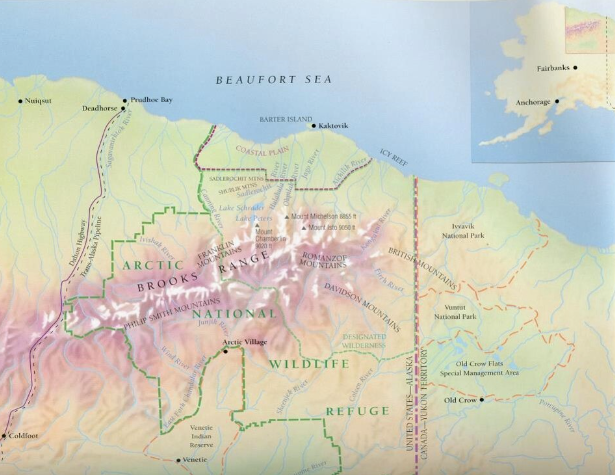
In July of 2023, blog author Danica Carey traveled to the Arctic Refuge with four other women as part of a collaboration between Alaska Wilderness League and Love is King. This blog interview is an account of her experience, both in the Arctic Refuge and then more recently advocating in D.C.
It’s been about a year since you visited Arctic Village and the Arctic National Wildlife Refuge. What has stayed with you from that trip?
Every moment in Arctic Village is etched into my memory: the four-wheeler welcome party greeting us as we arrived, the boat tour up river, the walk up to the lake to fish. I remember Sarah James generously opening up her property to us, and touring around the original settlement, the church, and the school. Community members would stop by to tell stories, we played card games with the kids, and we were treated to a comedy show with Don Burnstick (Burnstick, who is Cree from Alexander First Nation in Alberta, has brought his traveling comedy show to Indigenous communities for over 30 years).
The life that the Gwich’in people have built on what’s now just a small portion of their ancestral lands feels eternal. They have adapted as outside pressures encroach upon them, continuing to build on their cultural heritage while finding alignment with external influences. They continue to honor what they call “Izhit Gwandaii Goodlit” or the “Sacred Place Where Life Begins.” Today, they still rely on the hunting and fishing that has always defined them as the Caribou people, even as they bear the brunt of impacts on herds they so deeply rely on and are connected to.
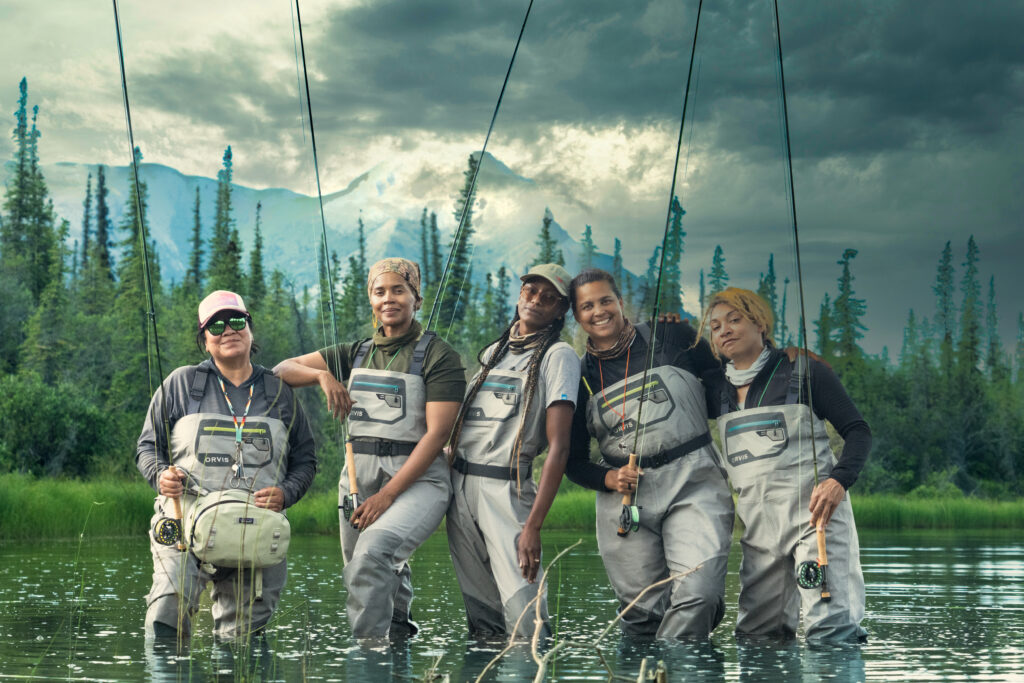
Photo credit: Chad Brown, founder of Love is King and board member of Alaska Wilderness League
How did that trip impact you and shape your commitment to protecting the Arctic?
I’ve dreamed about going to this part of Alaska for decades. For many in the lower 48, regardless of our experience with Alaska, the state represents one of the last surviving and largest segments of wild lands left in America. Arctic Village is a place that few get to visit, even briefly, and getting the opportunity to spend days learning directly from Sarah James and the Gwich’in community deeply instilled in me the notion that, in exchange for the privilege of being welcomed into their community, we have a responsibility to help protect it.
Sarah James showed us such graciousness not only in opening her property, but also in facilitating connections and access for us. In turn, we were able to experience the community fully and learn from so many people about their experiences as a community and what they are building for their future.
What compelled you to sign up for the Arctic advocacy fly-in in DC?
After getting to engage firsthand with this community, I jumped at the chance to be a part of the advocacy group and join the League’s efforts to share these experiences and lessons with our nation’s elected officials. Having some experience advocating at the state level, I was eager to bring these stories to the federal level.
I firmly believe each of us has not only a right but a responsibility to engage as much as possible with our representatives locally and federally. The more we can do to connect with decision makers, the better we become at understanding how to be more effective, and how to focus attention on important issues in our daily lives. Our government, powerful as it is, should consider every one of us in its policies, and advocacy can help us move toward this ideal.
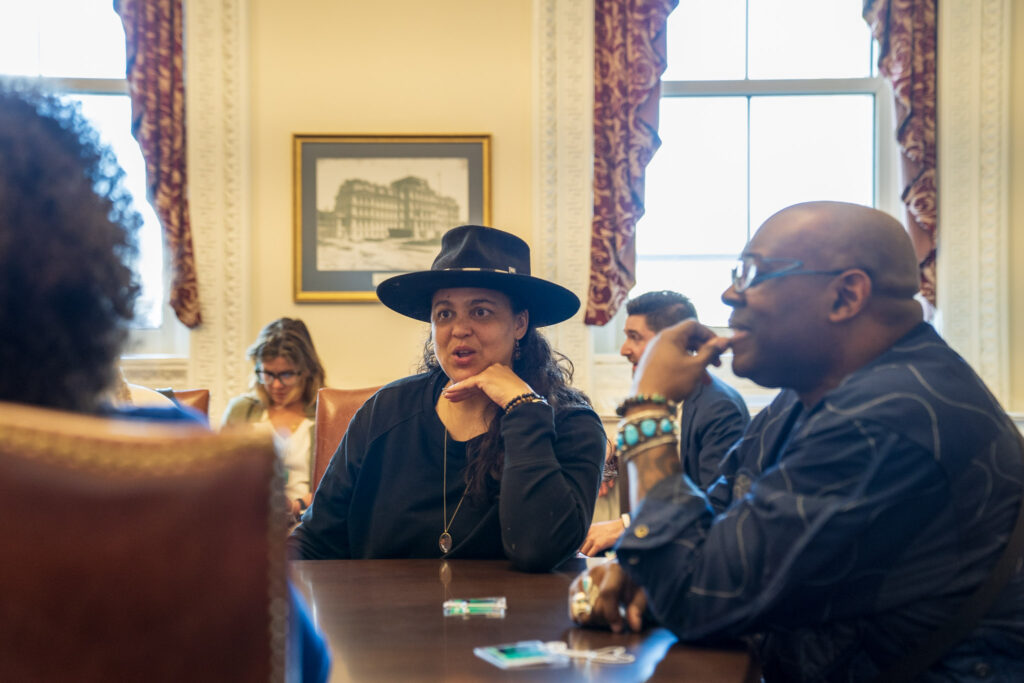
Photo credit: Jessica Vanterpool
You’ve had significant experience engaging in advocacy at the state level in California. Did it feel any different meeting with federal legislators in DC?
Despite my experience at the state level, advocating at the federal level initially felt daunting, as did this complex topic. But however intimidating it was, I was not going to pass up the chance to support the protection of the natural world and an Indigenous community’s subsistence lifestyle. Again, this is a group of people that have been able to maintain a portion of their traditions on a fraction of their sacred land.
The energy in DC, at least to an outsider like me, feels full of hidden power and authority: people’s movements seem almost choreographed. I could tell that the people around me held some type of power, but I was surprised that no one seemed interested in parading their position. Whether that is true humility or a negotiation tactic, I doubt I’ll ever fully understand. I was overtaken by the feeling that everything runs smoothly as long as you don’t step out of line, while also feeling like I had no grasp on where that line exactly was.
What were the highlights from the fly-in to DC?
The coordination and facilitation by Alaska Wilderness League was incredible and made this all possible. They took the time to help us feel oriented in the capital and with the representatives we visited, and they created spaces and context that allowed me to feel grounded in my experiences and comfortable enough to share. Quality time was in abundance, which is why no single moment really stands out for me: my mind flashes through dozens of laughing faces and heartfelt gazes as we shared our unique adventures and experiences. Our stories from our time in the Arctic shared the same scenery and yet stayed with us all in our own particular ways.
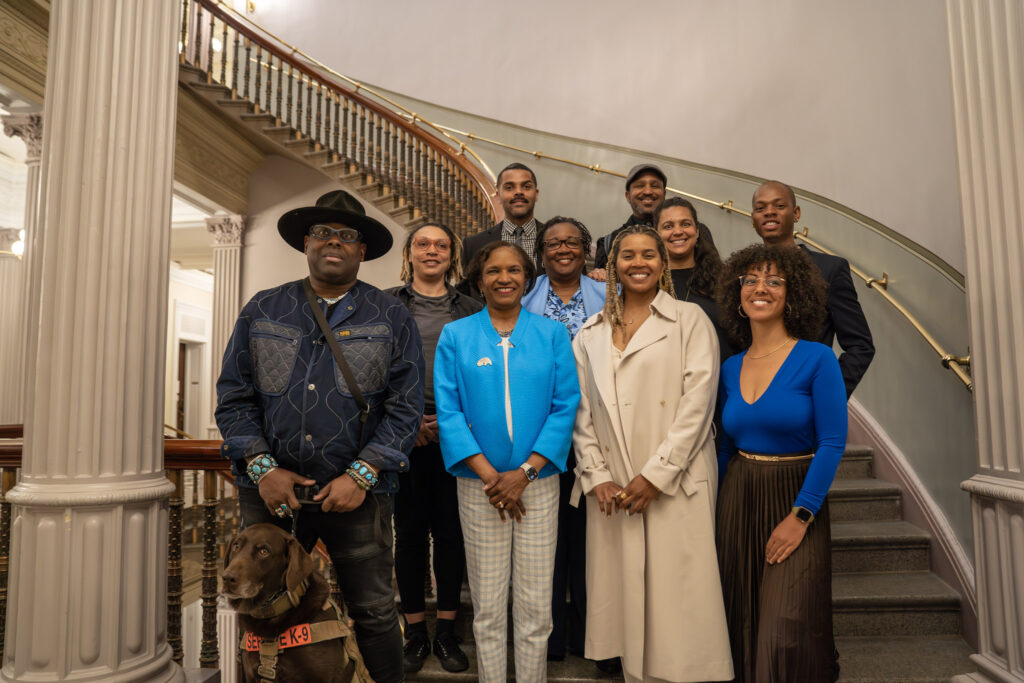
Photo credit: Jessica Vanterpool
What questions are you holding after these trips?
It’s easy to feel like life would come to a halt without oil and gas. No matter what we do for work or fun, our daily needs are, right now, largely met by fossil fuels. I know that’s where a good portion of my paycheck goes. It’s daunting to recognize how dependent we are on extractive resources for the conveniences we have come to expect and rely on. I often wonder how our decisions and lifestyle would change if we were more connected to the areas that bear the true costs of extractive industries. Spending time with those most impacted by what we have come to accept as our collective “needs” has me second guessing what I actually want and need to live a full life.
The opportunity to experience a small piece of the advocacy that’s constantly at play to keep land and communities protected leaves me with more questions than answers. I am grateful to have experienced this work in collaboration with Love Is King and Alaska Wilderness League. Each is its own impressive force for America’s Arctic and each is uniquely positioned to facilitate collective impact with and through all of us that have had the privilege of getting to experience these incredible spaces for just a moment or a lifetime.
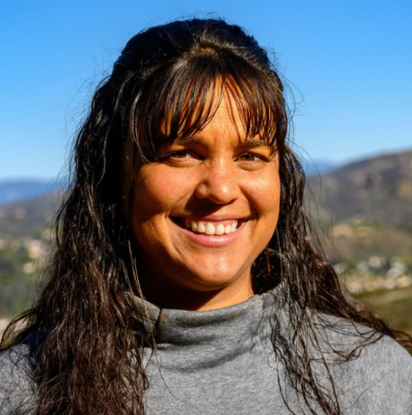
Danica Carey is the Director of Marketing Operations at Seirus Innovation, a family-run company. Seirus manufactures head to toe cold weather protection. In this role she has helped the brand develop and launch products that bring technical gear to outdoor enthusiasts. Her lifetime in the outdoors has been mirrored by a longstanding passion for all sports, which took her to the University of Nebraska for her collegiate soccer career and Marketing degree. Having been introduced early to sports and the outdoors, she continues to pursue those passions through soccer, ranching, skiing, part-time van-lifing and exploring new spaces.
Alaska Wilderness League’s partnership with Love is King is made possible in part through the generous support of the John McComb Memorial Fund. Learn more about John’s impactful legacy here.
